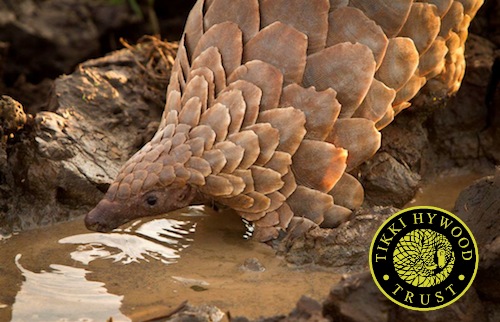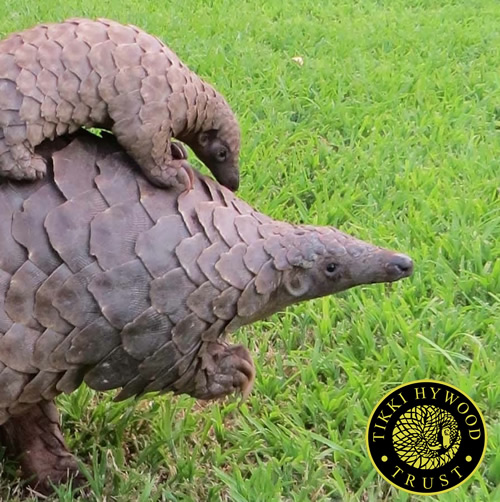
All eight pangolin species are now considered threatened with extinction, according to the latest update of the IUCN Red List of Threatened Species ™.
Two of the four Asian species, the Chinese pangolin (Manis pentadactyla) and Sunda pangolin (Manis javanica), are now listed as Critically Endangered. The Philippine pangolin (Manis culionensis) and Indian pangolin (Manis crassicaudata) have been moved from Near Threatened to Endangered.
All four African pangolin species — the ground pangolin (Manis temminckii), giant ground pangolin (Manis gigantea), white-bellied pangolin (Phataginus tricuspid), black-bellied pangolin (Phataginus tetradactyla) — have been moved from Least Concern to Vulnerable.
All pangolin populations are decreasing.
Pangolins bear the unfortunate distinction of “most illegally traded mammal in the world”, due to the massive demand from China, as well as Vietnam. Pangolin meat (including fetuses) is eaten as a delicacy. Pangolin scales are used in traditional Chinese medicine. However, the scales are simply comprised of keratin — the same as our fingernails — and there are no proven health benefits of consuming pangolin scales.
The plundering of this species is inexcusable, says Professor Jonathan Baillie, Co-Chair of the IUCN SSC Pangolin Specialist Group and Conservation Programmes Director at ZSL.
“In the 21st Century we really should not be eating species to extinction — there is simply no excuse for allowing this illegal trade to continue.”
This recognition from the IUCN is the latest positive development for pangolins in 2014.
- Pangolins received unprecedented media coverage this year, thanks to CNN’s John Sutter taking up the plight of this endearing mammal in “The most trafficked mammal you’ve never heard of“, part of CNN’s Change the List project.
- In June 2014, the Species Survival Network, an international coalition of over 100 NGOs, launched a Pangolin Working Group to address legal and illegal trade in pangolins, and to ensure that wild populations are protected and that CITES trade restrictions are adequately implemented and enforced. The Group is working towards the uplisting of all eight pangolin species to CITES Appendix I, which prohibits international commercial trade.
- At the 65th Meeting of the CITES Standing Committee held in July 2014, an intercessional working group on pangolins was established following interventions by countries and NGOs. The Working Group is Chaired by the European Union and comprised of source, transit and destination countries — and NGOs. It met for the first time on July 10, and adopted a mandate calling for robust reporting requirements on pangolin trade and conservation.
(This post was originally published on Annamiticus.)


